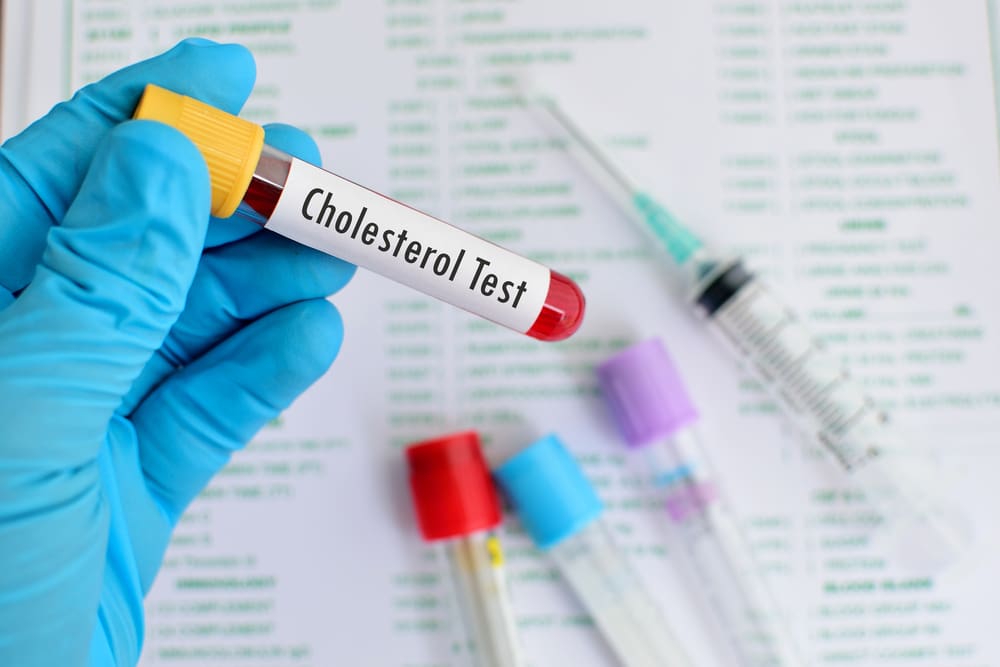LDL cholesterol, often called “bad” cholesterol, is significant in heart health. It’s a waxy substance in the blood that can accumulate in artery walls, forming plaque. This plaque buildup, known as atherosclerosis, can narrow arteries and restrict blood flow to the heart, increasing the risk of heart attack and stroke.
Therefore, understanding your LDL cholesterol levels and taking steps to manage them effectively is crucial for maintaining optimal heart health. This article explores the importance of LDL cholesterol, target levels for different individuals, and strategies for lowering LDL and promoting cardiovascular well-being.
LDL Cholesterol: Understanding the Basics
LDL cholesterol is transported throughout the body by lipoproteins, protein particles that carry cholesterol in the bloodstream. LDL delivers cholesterol to cells throughout the body for various functions. However, high LDL cholesterol levels can lead to excessive buildup in the arteries.
Here’s a breakdown of the different types of cholesterol:
- LDL (low-density lipoprotein): Often called “bad” cholesterol, LDL transports cholesterol to cells throughout the body. High LDL levels can contribute to plaque buildup in arteries.
- HDL (high-density lipoprotein): Often referred to as “good” cholesterol, HDL helps remove excess cholesterol from the bloodstream and transports it back to the liver for elimination. Higher HDL levels are beneficial for heart health.
- Total Cholesterol: This is the total amount of cholesterol in your blood, including LDL, HDL, and other types of cholesterol.
LDL Cholesterol Target Levels: A Personalized Approach
There’s no single “ideal” LDL cholesterol level for everyone. Various factors, including overall health, age, and additional risk factors for heart disease, determine target levels. Here’s a general breakdown of LDL cholesterol target levels recommended by the National Heart, Lung, and Blood Institute (NHLBI):
- Optimal: Less than 100 mg/dL (milligrams per deciliter)
- Near optimal/above optimal: 100-129 mg/dL
- Borderline high: 130-159 mg/dL
- High: 160-189 mg/dL
- Very high: 190 mg/dL and above
It’s important to note that these are general guidelines. Your doctor will consider your risk factors to determine your personalized LDL cholesterol target level. Here are some factors that may influence your target LDL level:
- Age: As you age, your risk of heart disease increases. Therefore, stricter LDL targets might be recommended for older adults.
- Existing heart disease or risk factors: Individuals with a history of heart disease, diabetes, high blood pressure, or a family history of heart disease may require lower LDL targets for optimal cardiovascular health.
- Other cholesterol levels: Your HDL cholesterol level also plays a significant role. Higher HDL levels can help offset somewhat higher LDL levels.
Strategies for Lowering LDL Cholesterol and Promoting Heart Health
Fortunately, there are several effective ways to lower LDL cholesterol and promote heart health:
- Diet: A heart-healthy diet rich in fruits, vegetables, whole grains, and lean protein can significantly reduce LDL levels. Limit saturated and trans fats in processed foods and red meat, and opt for healthier fats like fish, avocados, and nuts.
- Exercise: Regular physical activity is essential for heart health. Aim for at least 150 minutes of moderate or 75 minutes of vigorous-intensity exercise per week.
- Weight Management: Maintaining a healthy weight can significantly improve cholesterol levels. If you’re overweight or obese, losing even a moderate amount of weight can positively impact you.
- Smoking Cessation: Smoking is a significant risk factor for heart disease and significantly increases LDL levels. Quitting smoking is one of the most important steps to improve your heart health.
- Medications: Sometimes, lifestyle changes may not be enough to achieve target LDL levels. Your doctor may prescribe medications like statins, which effectively lower LDL cholesterol.
Maintaining Healthy Habits for Lifelong Heart Health
LDL cholesterol management is an ongoing process. Adopting healthy lifestyle habits like a balanced diet, regular exercise, and weight management can significantly reduce your risk of heart disease. Here are some tips for maintaining healthy habits:
- Plan your meals: Meal planning can help you make healthy choices and avoid unhealthy temptations.
- Find an exercise routine you enjoy: Choose fun and engaging activities to increase your likelihood of sticking with an exercise program.
- Set realistic goals: Start with small, achievable goals and gradually.
This story was created using AI technology.














